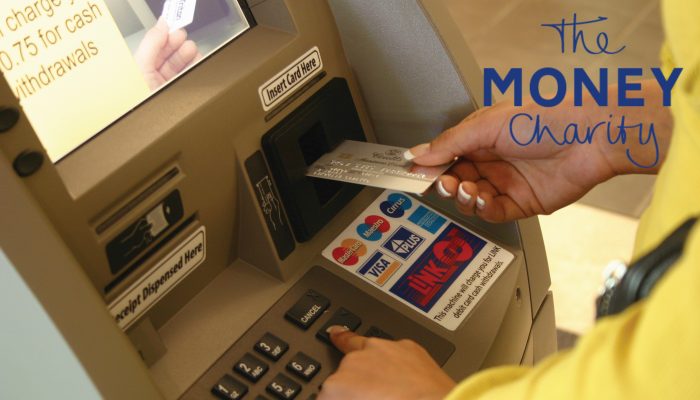While the UK’s rapid shift towards contactless and digital payments continues apace, these moves remain a very real problem and threat to the financial inclusion of a significant number of UK adults, according to the February 2020 Money Statistics, produced by The Money Charity.
The latest figures released from LINK, the UK’s cash distribution network, show that the number of ‘free-to-use’ cash machines across the UK fell by 6,685 in the year to January 2020, while the number of ATM transactions also fell, by 11.6%. In the same period, the number of ‘pay-to-use’ cash machines increased by 4,187. While these transaction figures do not include those made by customers within their own bank or building society branches, it is likely that these trends will be broadly reflected there.
The primary cause for these falling figures can clearly be identified as the UK shifting its preferred method of payment from cash to digital payments, although other factors, such as the cuts in fees paid to cash machine operators, and ongoing closures of many bank and building society branches, are also in play. The UK has seen a reduction of 22% (2,940) of its total branches since 2012.
However, the increasingly common assertion that “no-one uses cash anymore” can still demonstrably shown to be false, with 2.2 million people saying they only use cash in their daily transactions, according to the 2019 Access to Cash Review. The FCA also state that there are 1.3 million people who do not have any form of bank account, with the highest ‘unbanked’ rate being seen in London, with 4% of the population. When adding in the 7.4 million basic bank accounts (BBAs) which HM Treasury say are currently in use, a much more complex picture of the UK’s approach to managing its money emerges.
Paul Frost, Interim Chief Executive of The Money Charity says:
“Even as it opens newer, sharper, more intuitive and even exciting ways to manage our money well and increase our financial wellbeing, the technology advances of our onrushing digital world can often feel relentless and all-consuming. It is essential then that as things progress and evolve, we are diligent and aware enough to not leave behind and exclude large portions of society.
“At The Money Charity, along with others such as Which? and the Access to Cash Review, we are calling on the government to quickly come up with a plan to maintain cash access right across the UK, particularly for the vulnerable and those most dependent upon the cash network. This is an urgent necessity to keep growing the UK’s financial inclusivity, as well as a vital safeguard for us all on the occasions when digital systems fail, which remains a common current issue.”
Other striking numbers from the February Money Statistics:
- 318 people a day were declared insolvent or bankrupt in England and Wales in October to December 2019. This was equivalent to one person every 4 minutes and 32 seconds. (P8.)
- Net lending to individuals and housing associations in the UK grew by £167 million a day in December 2019. (P6.)
- Borrowers paid £139 million a day in interest in December 2019. (P5.)
Get the full picture and many more fascinating facts about money in the UK in our monthly Money Statistics.
Notes to Editors
- The Money Charity is the UK’s financial capability charity. We believe that being on top of your money means you are more in control of your life, your finances and your debts, reducing stress and hardship, and that being on top of your money increases your wellbeing, helps you achieve your goals and live a happier more positive life as a result. Our vision is for everyone to be on top of their money as a part of everyday life. We empower people across the UK to build the skills, knowledge, attitudes and behaviours, to make the most of their money throughout their lives. Find out more at http://themoneycharity.org.uk/
- All statistics are from the latest available data at the time of writing/release.
- You may use any of the statistics quoted in this release, or within The Money Statistics, as long as:
- You don’t make any commercial or financial gain from their use;
- You clearly acknowledge The Money Charity as the providers of the information and point your audience towards signing up themselves for the monthly report; and
- You do not make substantive adjustments to the presentation of the statistics, such as amending the statistic phrasing, or for example, repurposing the statistics into a format they are not appropriate for, such as an editorial/’opinion piece’ from the charity.
- If you’d like The Money Statistics emailed to you every month as soon as they’re published, please sign up at: http://themoneycharity.org.uk/money-statistics/
- If you’ve any questions, comments, or want any information about the source of these statistics, please contact us through hello@themoneycharity.org.uk
- Any media or press enquiries should be directed to our Communications & Marketing Manager, James Yelland, on james@themoneycharity.org.uk
